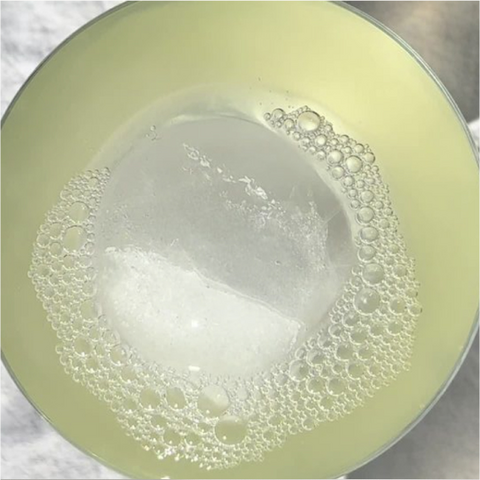Feeling groggy? Thoughts cloggy? You’re probably experiencing brain fog. Brain fog isn’t a medical condition, but a decline in mental clarity and difficulty concentrating can signal an imbalance within. There are several reasons why you could be experiencing mental fatigue and other brain fog symptoms, but a few simple adjustments can help you recover your mental stamina and sharpness.
Keep reading to discover 5 of the best natural remedies for brain fog.
1. Nutrition
If your standard diet is packed with foods that burden your body rather than nurture you, your brain and entire system will have trouble functioning properly. Research shows that consuming a high amount of saturated fats and sugar can impair function in the hippocampus, a region of the brain that plays a major role in learning and memory. Moreover, the less diverse and nutrient-dense your diet is, the less likely you are to get an adequate amount of nutrients that are crucial for cognition and brain health. If you’re looking for a natural remedy to help with your cognitive function, start by making adjustments to your diet by incorporating whole foods, vegetables, and healthy fats into your meals.
To clear brain fog naturally, prioritize the following brain-boosting nutrients and foods in your diet:
- Omega-3s: These brain-boosting fats enhance learning and memory, boost blood flow, and support cognitive well-being. Foods high in Omega-3s include fatty fish, walnuts, flax seeds, flaxseed oil, and leafy greens.
- Curcumin: The main constituent in turmeric can improve cognitive function given its effects on synaptic plasticity and ability to reduce oxidative stress. Try to incorporate this herbal supplement and add it in recipes like soups, marinades, bean dishes, and veggie curries.
- Antioxidants: Antioxidants — including but not limited to Vitamins C, E, Glutathione, Flavonoids, and Polyphenols — have neuroprotective effects, making them powerful allies in the quest to keep brain fog at bay. Fortunately, there’s no shortage of healthy food choices rich in a variety of these free-radical fighting powerhouses. You can’t go wrong by including more colorful fruits and veggies, nuts, seeds, and legumes in your diet to help protect against oxidative stress.
This list is by no means exhaustive, but it’ll get you trending in the right direction. To simplify your next grocery haul, consider this list of foods to help with brain fog.
2. Stress Management
Acute stress is normal and healthy enough. In fact, it can even enliven you and replenish your energy, courtesy of a surge of adrenaline and cortisol. On the flip side, chronic stresscan tax your system and lead to brain fog by keeping the hypothalamic-pituitary-adrenal axis (HPA axis) fully activated. The hippocampus is responsible for shutting down this stress response once a perceived threat subsides. However, high levels of constant stress can end up damaging hippocampal cells and reduce hippocampal volume, thus impairing cognitive function.
It’s typically easier said than done to reduce stress. The good news, however, is that there are countless ways to manage stress and mitigate brain fog simultaneously. You can choose whichever ones work for you.
Tried-and-true ways to reduce the cognitive symptoms of brain fog include:
- Yoga
- Meditating
- Breathwork
- Cooking
- Journaling
- Reading
- Spending time in nature
3. Regular Exercise
If you want to keep your brain and entire body in great shape, break a sweat with aerobic exercise. A study conducted by researchers at the University of British Columbia found that aerobic exercise can boost the size of the hippocampus — which, again, facilitates learning and memory. Participants benefited from a larger hippocampal volume by walking briskly for 60 minutes two times per week.
The Centers for Disease Control (CDC) also note that regular exercise reduces the risk of cognitive decline and mental fatigue. They suggest that adults get at least 150 minutes of moderate-intensity exercise or 75 minutes of high-intensity exercise per week. Whether you choose to run, swim, hike, bike, dance — or have another go-to aerobic workout — keeping your heart rate up and sweating it out will prove to be a powerful, long-term natural remedy for brain fog and other cognitive symptoms.
P.S. Love yoga to manage stress and move? Rest easy knowing that it, too, has proven benefits for brain health. Studies show that yoga has a positive effect on the structure and/or function of the:
- Hippocampus
- Amygdala (which processes emotions, social communication and understanding, and certain types of memory)
- Prefrontal cortex (which promotes high-level thinking abilities and is most susceptible to the detrimental effects of stress)
- Cingulate cortex (which processes emotions, regulates behavior, and may support internally-directed cognition)
4. Sleep
Not sleeping well at night? Poor sleep may be the cause of brain fog. Getting enough high-quality shut-eye is crucial to overcome brain fog and promote total well-being. While you’re catching your ZZZ’s, the brain:
- Removes waste and toxins
- Repairs and recharges itself
- Consolidates memories
- Facilitates healthy blood flow
Short-term poor sleep can impair memory and concentration, while ongoing sleep deficits can lead to neurological dysfunction.
By adopting each of the natural ways to get rid of brain fog above, you’ll be in a great position to keep your sleep hygiene on track. In addition, you’ll want to take care to:
Go to bed at the same time each night, logging 7 to 9 hours
Following a consistent, calming bedtime routine free from stimulation and screens
Create a dark, quiet, and cozy sleep environment
5. Supplements
Sticking to the staples that comprise a healthy diet and lifestyle can work wonders to clear brain fog naturally. But if you find that you need some extra support, supplements for brain fog can help.
Brain Dust® contains adaptogens and herbs that target stress to support mental stamina, alertness, and concentration.* This natural focus supplement includes clean and potent ingredients informed by Traditional Chinese Medicine and Ayurveda:
- Organic Lion's Mane for brain fog is known to be neuroprotective*
- Ginkgo supports speedy processing*
- Rhodiola promotes alertness and concentration*
- Organic Ashwagandha promotes mental stamina and clarity*
- Organic Astragalus known to promote healthy blood flow*
- Organic Maca traditionally used to promote energy and memory function*
Mix 1 tsp into coffee, black tea, hot water with a splash of milk, or smoothies and enjoy daily. Before you know it, you’ll discover that this natural remedy for brain fog will help keep your mind and body calm under pressure so you can get through your tasks with clarity, energy, and ease.
Sign Up, Nerd Out
Get wellness tips, education, and recipes
delivered straight to your inbox.
Get wellness tips, education,
and recipes delivered
straight to your inbox.
Wrapping Up
If you struggle with mental fatigue from brain fog, you can reverse these symptoms. By making a few simple lifestyle changes like eating a healthy diet, taking supplements, and prioritizing your physical and mental health, you might be able to improve your cognitive performance and sharpen your concentration.
Sources
- https://www.ncbi.nlm.nih.gov/pmc/articles/PMC4555146/
- https://www.ncbi.nlm.nih.gov/pmc/articles/PMC9641984/
- https://www.hsph.harvard.edu/nutritionsource/what-should-you-eat/fats-and-cholesterol/types-of-fat/omega-3-fats/
- https://pubmed.ncbi.nlm.nih.gov/19540859/
- https://www.hsph.harvard.edu/nutritionsource/antioxidants/
- https://pubmed.ncbi.nlm.nih.gov/32998277/
- https://go.gale.com/ps/i.do?p=HRCA&u=googlescholar&id=GALE|A681133416&v=2.1&it=r&sid=googleScholar&asid=10ddbf3f
- https://www.ncbi.nlm.nih.gov/pmc/articles/PMC4561403/
- https://www.health.harvard.edu/blog/regular-exercise-changes-brain-improve-memory-thinking-skills-201404097110
- https://www.cdc.gov/nccdphp/dnpao/features/physical-activity-brain-health/index.html
- https://www.ncbi.nlm.nih.gov/pmc/articles/PMC6971819/
- https://www.ncbi.nlm.nih.gov/pmc/articles/PMC2907136/
- https://pubmed.ncbi.nlm.nih.gov/23869106/
- https://www.ncbi.nlm.nih.gov/pmc/articles/PMC4651462/
- https://pubmed.ncbi.nlm.nih.gov/34709917/














